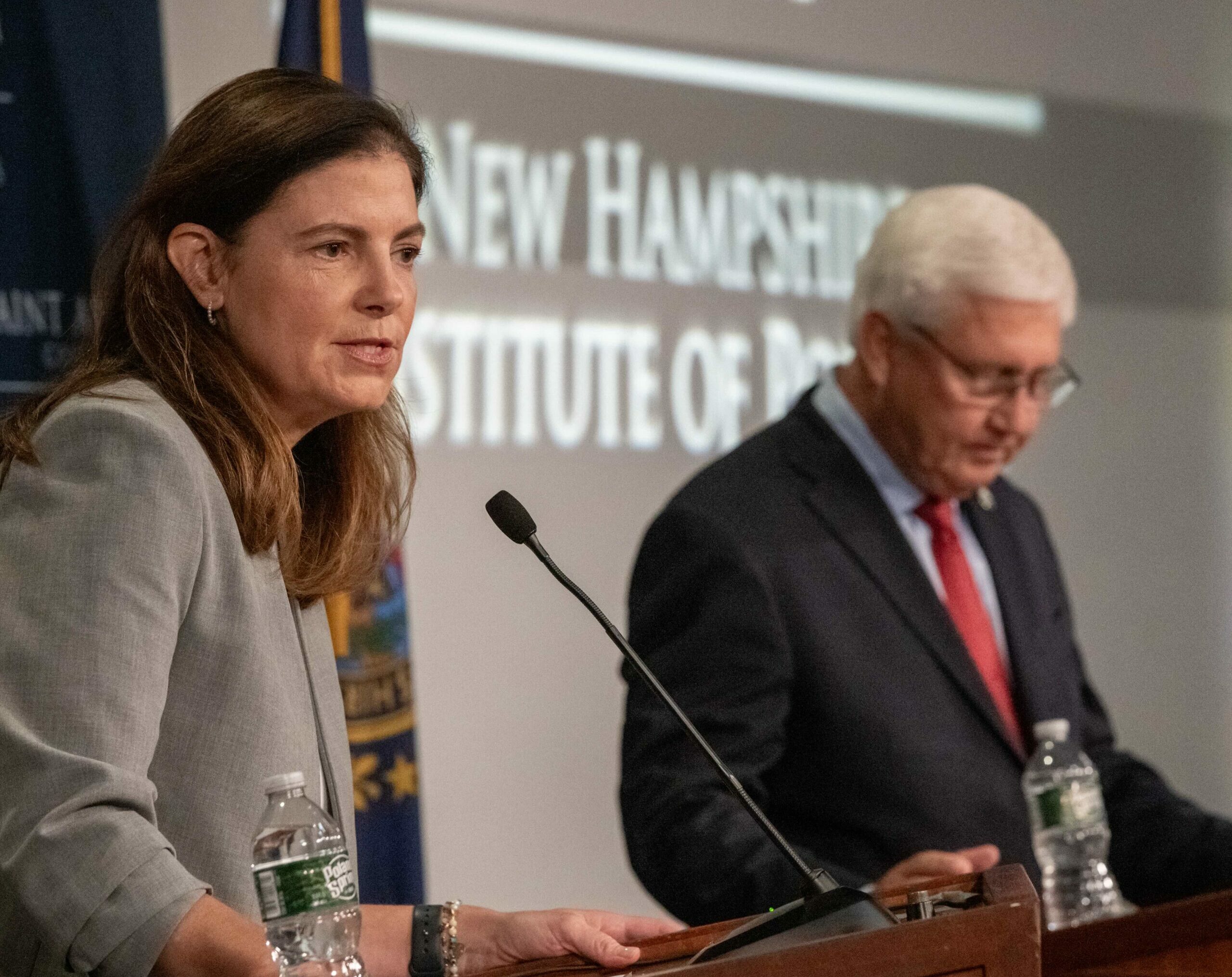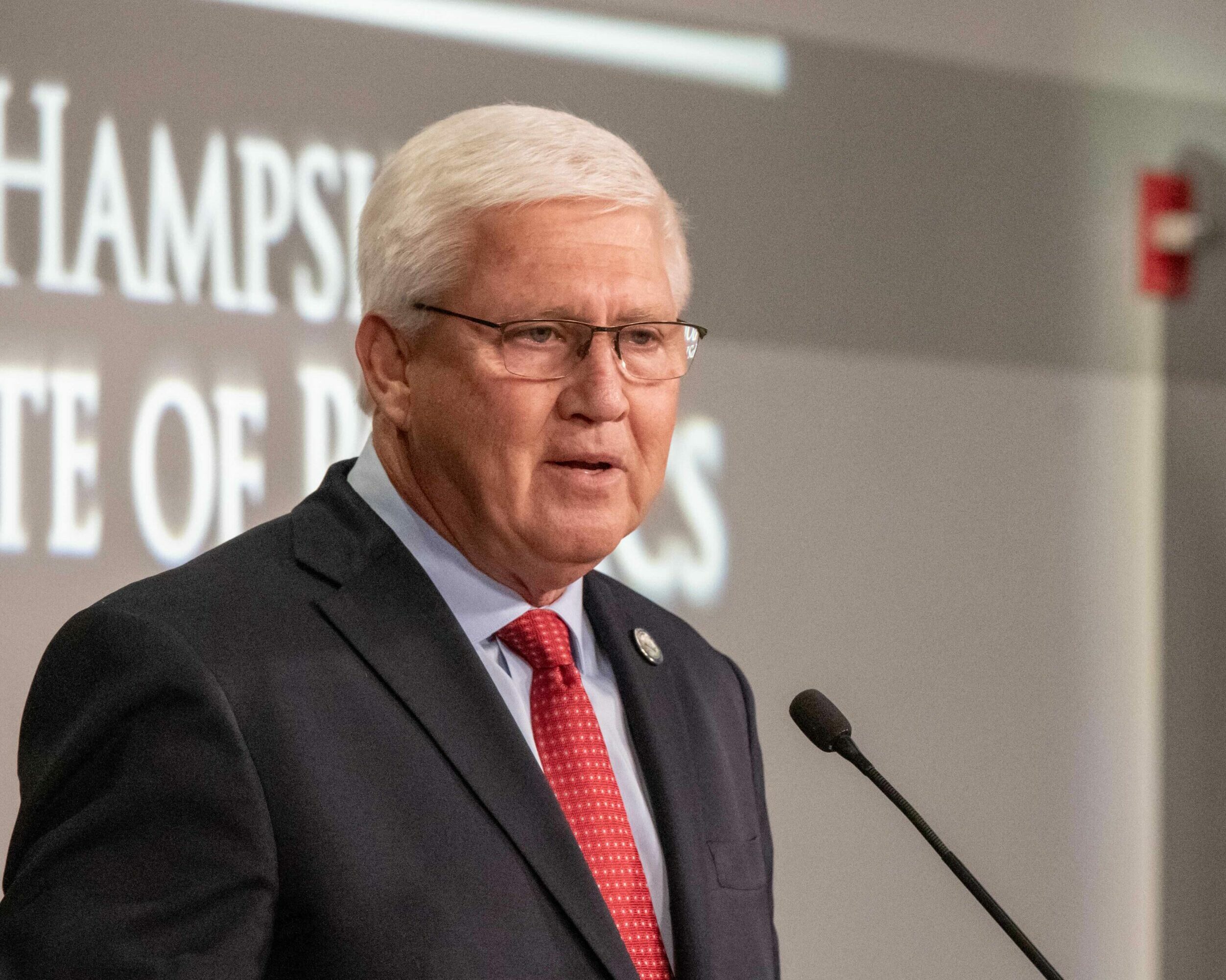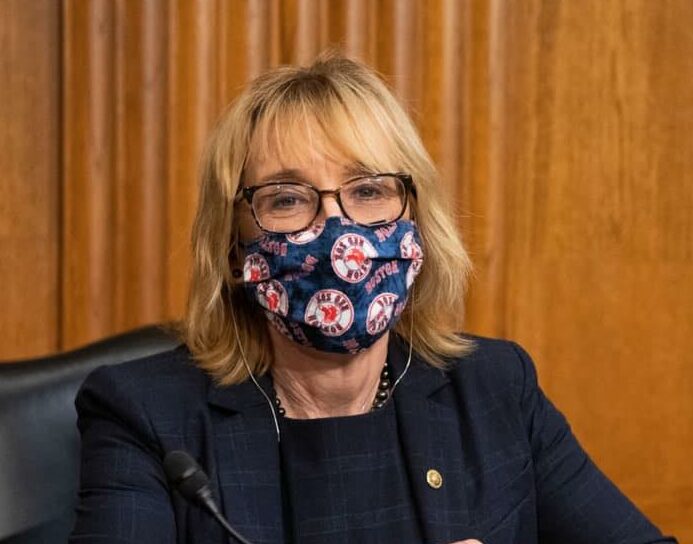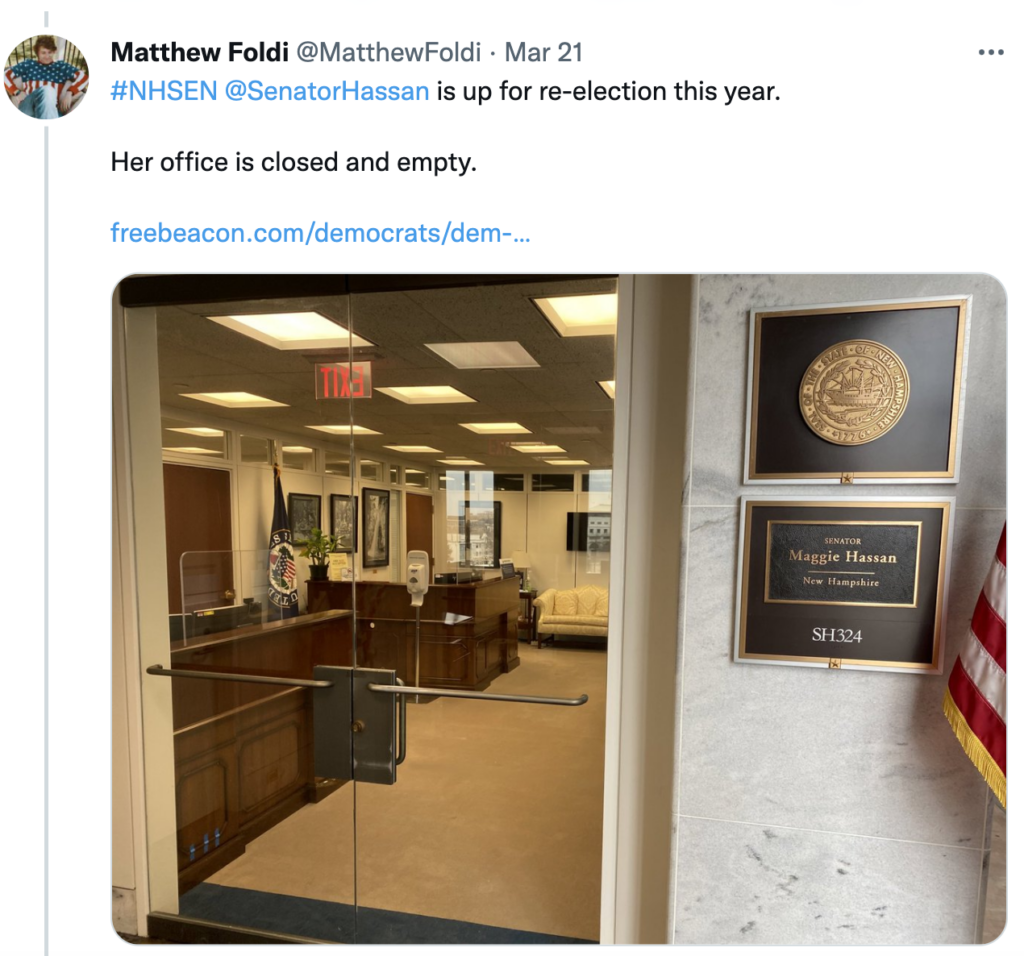Beyond Court Challenge, Next NH Governor May Decide on Protecting Girls Sports
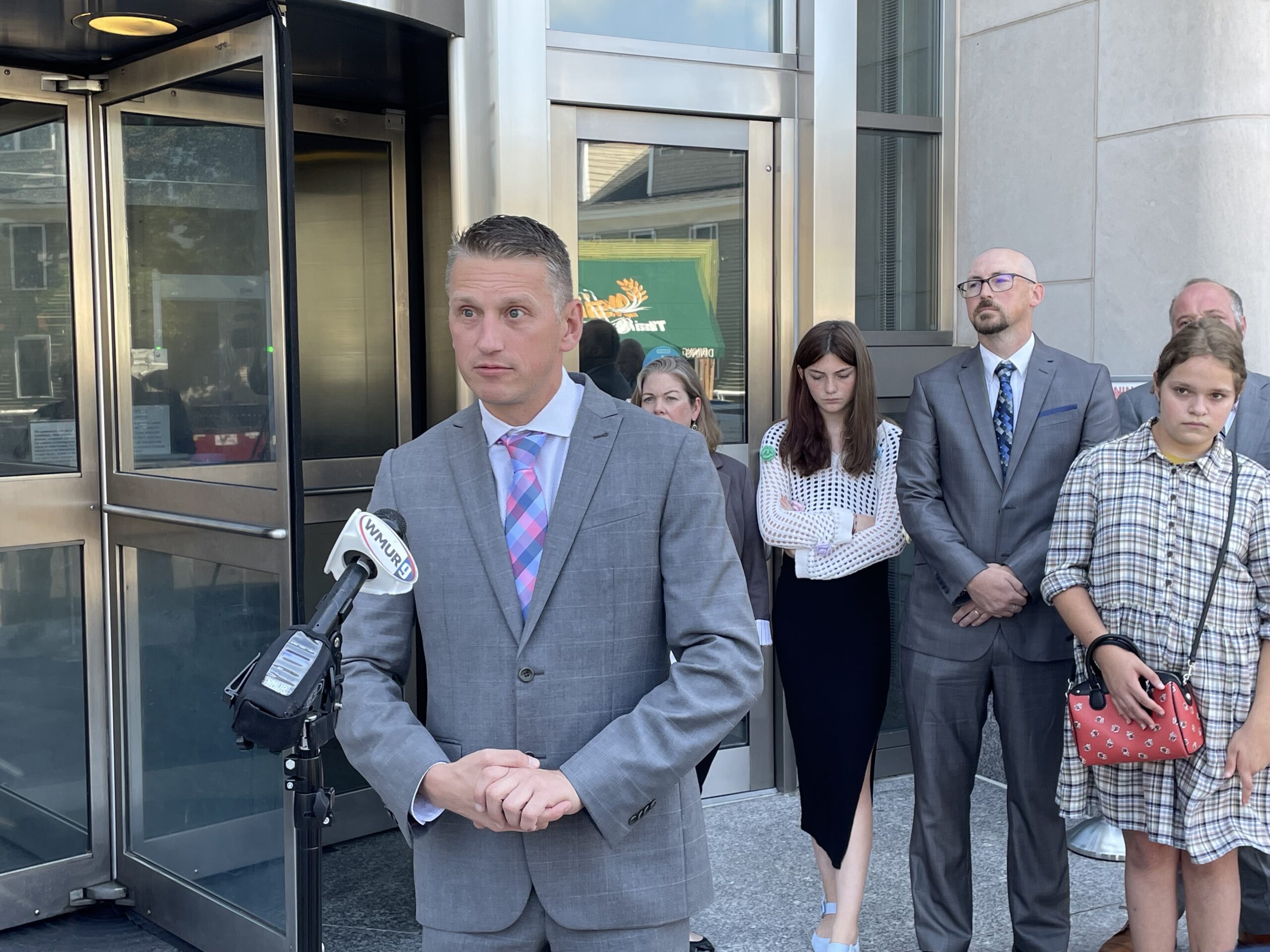
United States District Court Judge Landya McCafferty ruled again Tuesday to prevent New Hampshire from enforcing its law keeping biological males from participating in girls sports.
The judge extended a temporary order allowing 15-year-old Parker Tirrell to play on the Plymouth High School girls soccer team. Tirrell and 14-year-old Iris Turmelle have filed a lawsuit challenging the state’s new Fairness in Women’s Sports Act.
When Gov. Chris Sununu signed the law last month, he made New Hampshire the 26th state to pass laws protecting girls sports from male athletes.
New Hampshire Attorney General John Formella and his office are defending the law, both in New Hampshire and at the national level. His attorneys are in court before Judge McCafferty, and he’s joined 25 other state attorneys general urging the U.S. Supreme Court to take up the issue.
“We remain committed to vigorously defending this new law and will determine next steps once the Court issues its order,” Formella said.
In New Hampshire, both sides have requested a bench trial, rather than a jury trial. McCafferty signaled during Tuesday’s hearing she will likely rule in favor of Tirrell and Turmelle, saying she believes the New Hampshire law violates Title IX, the law that protects women’s sports, and Title XII, the law against employment discrimination.
If McCafferty does strike down the law, the decision to pursue an appeal will almost certainly be made by New Hampshire’s next governor. And if it is a Democrat, it’s all but certain the law will be allowed to die and girls will be competing against biological males once again.
Neither former Manchester Mayor Joyce Craig nor Executive Councilor Cinde Warmington would respond to questions about this case from NHJournal. However, they’ve both made it clear they oppose the new law.
“These bills are an attack on at-risk trans kids across New Hampshire. Our state needs leadership focused on delivering results, not division. As governor, I will always stand up for the right of our residents to live authentically, without demonization,” Craig said.
Executive Councilor Cinde Warmington, who is challenging Craig in the Democratic primary, linked banning boys from girls sports teams to violent hate crimes when the law was signed this summer.
“We’ve seen a rise in hate crimes against our LGBTQ+ community, in part because radical Republicans have villainized trans kids who’re already vulnerable & at a higher risk of suicide. When I’m governor, everyone will be free to love who they love & be who they are,” Warmington said on social media.
The two GOP candidates for governor have a very different view.
Chuck Morse, running against Kelly Ayotte in the GOP primary, says he’d fight for an appeal if elected.
“As governor, I would absolutely pursue an appeal if the court finds against the state. It is a question of fairness and protecting the rights of women to play sports on a level playing field. To me it is simple: boys should play against boys and girls should play against girls,” Morse said.
Ayotte agrees.
“As the only candidate for governor who has actually argued before the Supreme Court, I will do whatever it takes to defend our state. As the proud mom of a three-sport state champion female athlete, I believe protecting women’s sports is a matter of fairness. Women fought for decades to achieve that fairness through Title IX. When I am governor, New Hampshire’s female athletes will have a champion in the Corner Office,” Ayotte said.
Polls show Granite Staters overwhelmingly support allowing girls to compete in girls-only sports, rather than forcing them to compete against biological males who identify as female. It’s not just theory, either. A biological male took first place in the girls high jump competition earlier this year, beating every female in the New Hampshire Interscholastic Athletic Association (NHIAA) indoor track and field championship.
At the global level, the top two boxers in women’s Olympic boxing both had male chromosomes.
Lawyers for Tirrell and Turmelle want to block the law from taking effect throughout the state, arguing that stopping transgender girls from playing girls sports is discriminatory.
“This law was designed to prevent trans girls from playing sports with other girls … The only difference is their sex assigned at birth. Girls not assigned female at birth are being excluded,” said Chris Erchull, an attorney with GLAD, the GLBTQ Legal Advocates and Defenders organization which is representing Tirrell and Turmelle.
Assistant Attorney General Micheal DeGrandis argued legal precedent allows public institutions, like schools, to make distinctions between boys and girls. The New Hampshire law makes that distinction in an objective, equitable manner by requiring every student to play on sports teams that correspond to their biological sex at birth.
“We’re not trying to define ‘sex’ at all, we’re just saying ‘What does it say on your birth certificate,’” DeGrandis explained.
While the law might mean students like Tirrell and Turmelle are required to play coed sports instead, that does not make the law unconstitutional. The law was crafted as a way to protect competitive fairness in girls sports, and to keep biological girls safe from possible injury, DeGrandis said.
“There was no discriminatory intent or animus. This was an attempt to solve legitimate problems, even if people disagree with the best way to do it,” DeGrandis said.
The appropriate remedy for those opposed to the law should not be in court, DeGrandis said, but in the democratic political process, who noted there is an election happening in a few months.
“The Court should not be making decisions for the legislature,” he said.
McCafferty extended the temporary restraining order that allows Tirrell to practice and play soccer with the girls team for another two weeks. McCafferty could rule on an injunction the teens are seeking against the law during that time. That injunction would likely be in place through any trial.

